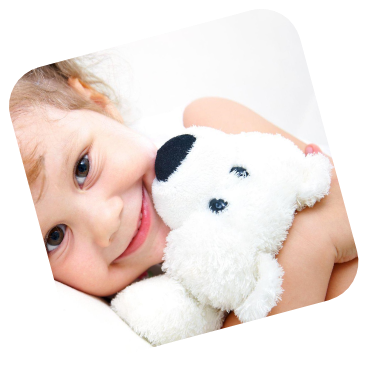
- Address 2148 Ocean Ave, Ste 401A, Brooklyn NY 11229
- Schedule Appointment
- Call Now 718-339-1810

Pediatric dentists Dr. Khabensky DDS and Dr. Kim DDS try extremely hard to save a child’s natural teeth, even primary teeth. Primary or baby teeth have an important role to play in the development of your child’s speech, enable them to eat a varied and nutritious diet, and they help adult teeth to come through correctly positioned. However, there are occasions when we will need to remove a tooth. The most common causes for tooth extraction include:
There are two types of tooth extraction; tooth removal can be a simple extraction or a surgical extraction.
We can perform a simple tooth extraction when the tooth is visible in the mouth. During this straightforward procedure, Dr. Tracy or Dr. Igor will gently loosen the tooth using a special instrument called an elevator. They use forceps to remove the tooth from its socket carefully.
Surgical tooth extraction is a little more complex and is used to remove a tooth that has yet to erupt in the mouth or which may have broken off at the gum line. To remove the tooth, we make a tiny incision into the gum so we can access the broken tooth more easily.
We normally carry out simple tooth extractions using only a local anesthetic since the procedure is so quick. If your child is at all anxious or nervous about this procedure, we can always discuss additional sedation options to help them relax.

Surgical tooth extraction can also sometimes be completed using just local anesthetic, but we may recommend sedation dentistry for increased comfort. Sedation options may include nitrous oxide or laughing gas, which is very effective at helping an anxious child to relax.
Alternatively, we can use intravenous sedation, which provides a deeper level of sedation and which may be appropriate for longer or more complex tooth removals.
Some baby teeth come out very easily, but even so, the empty socket may feel tender and uncomfortable for several days afterward. During the recovery period, your child may resist tooth brushing, but they must maintain good oral hygiene. After tooth extraction, we will provide you with lots of helpful information about how to care for your child and their teeth as they recover.
Immediately after treatment, we will ask you to restrict your child’s diet and to avoid giving them any hot foods or drinks until the anesthesia has worn off completely. For the first day, give them only softer foods that require little or no chewing and which are less likely to get stuck around the extraction site.
Additionally, make sure your child doesn’t drink through a straw, and they avoid spitting as this could dislodge the protective blood clot that forms in the empty socket and which helps the socket to heal. If needed, ice packs will help decrease any swelling and ease discomfort. We can also talk to you about using suitable over-the-counter painkillers and advise you on the correct dosage.
Usually, the area around the extraction site is not brushed for four or five days afterward to allow healing to begin. Instead, a warm saltwater rinse made by dissolving a teaspoon of salt in a cup of warm water will help to keep the extraction site clean and will help with healing.
If your child is resistant to the idea of brushing the rest of their teeth during healing, gently encourage them using positive reinforcement. Tell them how brave they were at the dentist and reward them. Talk to them about how important it is for their adult tooth to have enough room to grow, and how teeth need cleaning thoroughly to stay healthy and strong. Your child might not feel comfortable enough to brush their entire mouth at once, so let them brush a small section before taking a break then continue brushing gently.

Most children will heal very well after a few days, and any sensitivity or discomfort should disappear quite quickly. If your child continues to feel pain, please contact our dental office so we can assist you both. We can inspect the extraction site for any signs of infection, which, although very rare, can occur occasionally and is easily treated.
Pediatric Dentistry Center
2148 Ocean Ave, Ste 401A
Brooklyn, NY 11229
☎ 718-339-1810


